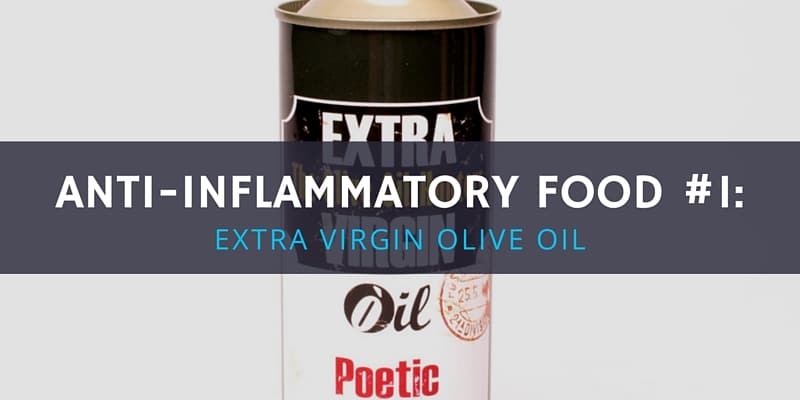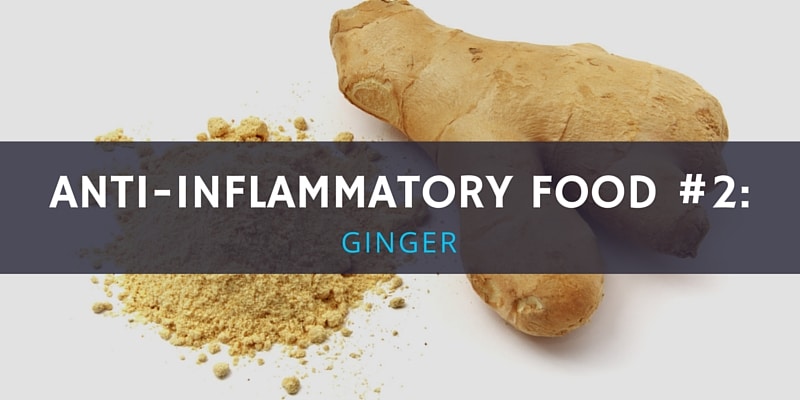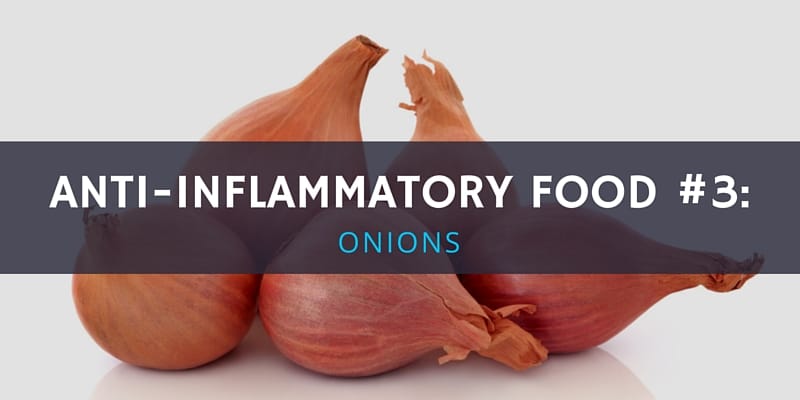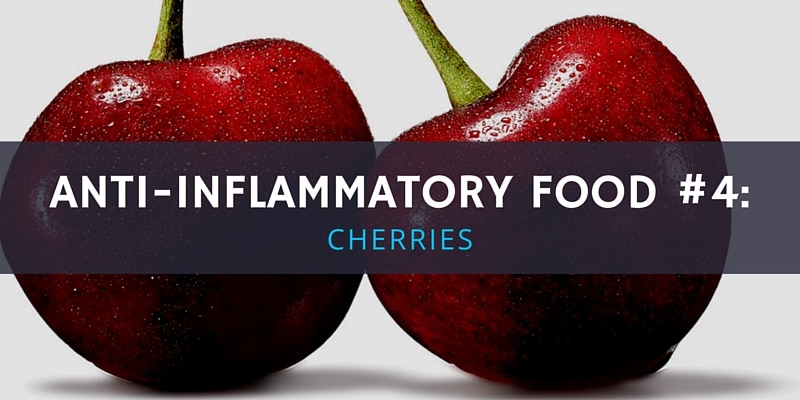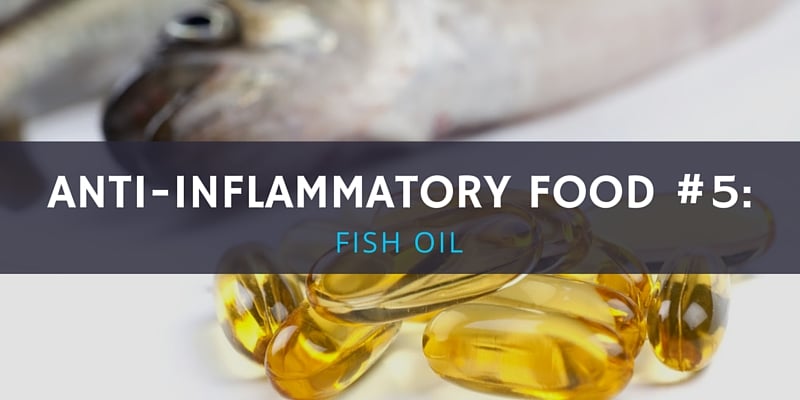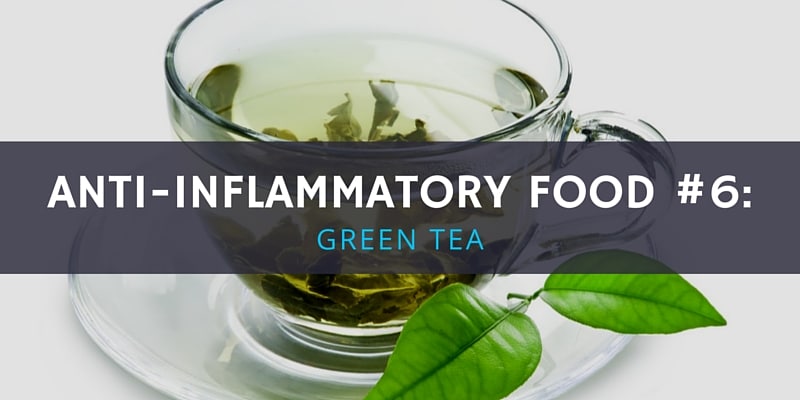6 Important Foods You Should Eat for Soothing Arthritis Pain

Arthritis, like several other health conditions so many of us deal with, is a product of inflammation in the body.
If you’ve ever wondered why I’m such a big proponent of filling your diet with anti-inflammatory foods, it’s because I hate to see people suffering with conditions as painful and limiting as this one.
It can literally grind you to a halt.
There are two types of arthritis:
- Osteoarthritis – when the cartilage between the ends of the bones are worn down and they begin to rub together
- Rheumatoid Arthritis – an autoimmune disease that causes softening of the synovial membrane, leading to bone loss and cartilage damage
Whichever kind you have, arthritis can lead to swollen joints, stiffness, severe pain and discomfort, a poor range of motion, weakness and muscle wastage.
Many arthritis sufferers are very familiar with NSAIDs (non-steroidal anti-inflammatory drugs) such as ibuprofen, but long term use of these drugs can lead to health issues like heart disease, gastrointestinal disease, and kidney damage.
Try These 6 Foods to Eat for Arthritis Pain
Although these natural remedies can’t cure your condition, they can make a tremendous difference in how you feel and function.
These six foods work to soothe your pain and cut back on inflammation, which make them my top picks when it comes to alleviating arthritis symptoms.
1. Extra-Virgin Olive Oil
It may come as a surprise, but extra virgin olive oil works a lot like NSAIDs to reduce inflammation.
This is thought to be because of oleocanthal, a chemical in the oil that stops the production of tCOX enzymes. These enzymes cause inflammation at the cellular level.
By stopping them from working, the inflammation and pain that gets worse are greatly lessened.
There is proof that the amount of “throaty bite” you feel when you swallow extra virgin olive oil is strongly linked to the amount of oleocanthals that are in the oil.
It was thought by the same study that fresh olive oils from Tuscany had the most oleocanthal chemicals.
A study in the American Journal of Biological and Pharmaceutical Research also found that extra virgin olive oil helped with both short-term and long-term inflammation.
Researchers have found that three and a half tablespoons of extra virgin olive oil work just as well as a 200 mg ibuprofen pill.
But three and a half tablespoons of extra virgin olive oil a day adds about 500 calories to your daily calories, so don’t use it too much or you’ll gain weight!
Also, if you don’t like extra virgin olive oil, try avocado oil, grapes oil, safflower oil, walnut oil, or flaxseed oil. All of these oils are strong anti-inflammatory as well.
2. Ginger
If you don’t have ginger on your spice rack or in your fridge, you might want to consider purchasing this potent spice.
Ginger is one of those naturally anti-inflammatory foods that can help with arthritis. It’s also great for a lot of other problems, like stomachaches and feeling sick.
According to a study from the University of Miami, ginger extract cut osteoarthritic knee pain by up to 40% compared to a control group.
If you decide to take vitamins, keep in mind that not all of them are the same.
This is the purest form of ginger, so look for ginger products that use “super critical extraction” whether you’re getting a capsule, powder, oil, or tea.
If you want to reduce inflammation the most, you should take between 100 and 200 mgs every day.
3. Onions
I know onions make a lot of things taste better, but did you know they’re also good for you and full of antioxidants? They are one of the best foods for people with pain because of this.
Flavonoids, which are found in large amounts in onions, are anti-oxidants that help get rid of free radicals before they can do any damage.
“Quercetins” are the main antioxidants that you can find in onions.
In particular, quercetin stops the production of leukotrienes, prostaglandins, and histamines, which cause inflammation in both types of arthritis.
Eating onions can also help your bones grow, which may help fix some of the damage that osteoarthritis has caused.
Onions are also good for your heart, can lower your cholesterol, and may help keep you from getting some cancers.
Keep this in mind: not all onions are good for you. Researchers have found that shallots, yellow onions, and red onions have more antioxidants than other onions. On the other hand, white and sweet onions have fewer antioxidants.
As a general rule, the stronger an onion is, the stronger its smell.
4. Cherries
I know onions make a lot of things taste better, but did you know they’re also good for you and full of antioxidants? They are one of the best foods for people with pain because of this.
Flavonoids, which are found in large amounts in onions, are anti-oxidants that help get rid of free radicals before they can do any damage.
“Quercetins” are the main antioxidants that you can find in onions.
In particular, quercetin stops the production of leukotrienes, prostaglandins, and histamines, which cause inflammation in both types of arthritis.
Eating onions can also help your bones grow, which may help fix some of the damage that osteoarthritis has caused.
Onions are also good for your heart, can lower your cholesterol, and may help keep you from getting some cancers.
Keep this in mind: not all onions are good for you. Researchers have found that shallots, yellow onions, and red onions have more antioxidants than other onions. On the other hand, white and sweet onions have fewer antioxidants.
As a general rule, the stronger an onion is, the stronger its smell.
5. Fish Oil
You’ve probably heard about the powers of Omega- 3 fatty acids.
But did you know that Omega-3 fatty acids have been shown to reduce the inflammation that comes with arthritis? This means that people can use less NSAIDs and other drugs.
Adding fish oil to your diet is a smart way to take charge of your arthritis symptoms in a way that is better for you and safer.
Adding 3–4 grams of Omega-3 fatty acid oil to your diet can help people with arthritis.
Not only is that great, but this dose reaction has also been shown to improve the health of the heart and gut.
6. Green Tea
If you are drinking white tea or black tea, I strongly recommend you also start drinking the far healthier option: green tea.
Green tea is full of polyphenols, which are chemicals that come from plants and help your immune system by making T-cells.
Although they might not mean to, this could help people with arthritis because the usual medicine they take weakens the immune system.
This means that a lot of people who use traditional drugs are more likely to get colds and the flu.
A polyphenol called EGCG (Epigallocatechin Gallate) is what makes green tea work. It stops inflammation in the joint tissue.
Green tea is also good for your heart, fights cancer, builds stronger bones, and keeps brain cells from getting damaged.
If you eat these natural anti-inflammatory foods for arthritis, they will improve your health in many ways. So, even if you don’t have arthritis, put them all on your shopping list!
